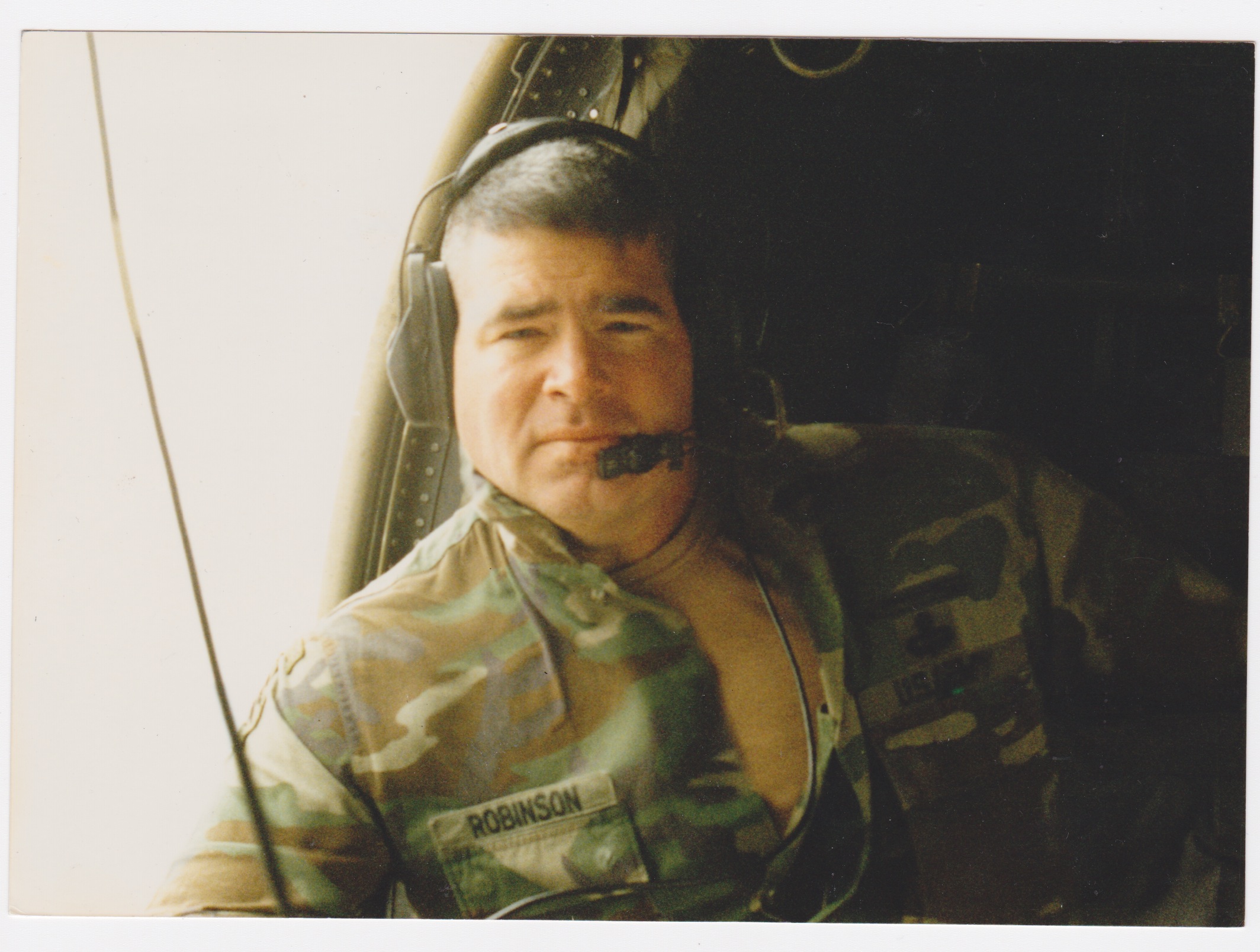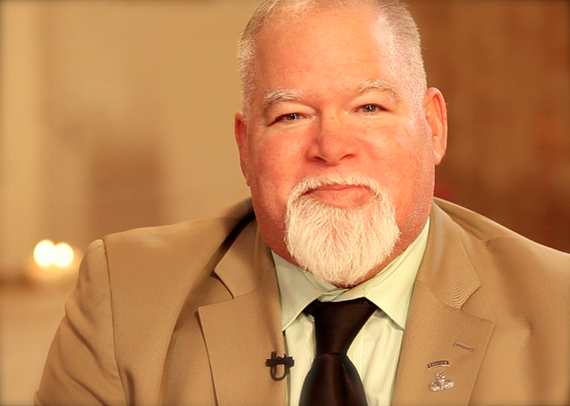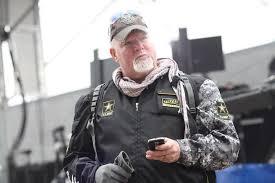The other day, I received the terrible news that Steve Robinson, a leading advocate for veterans and a friend of Causecast, had suddenly passed away. He died at the age of 51, while working at his desk at Prudential, laboring to the very end to improve the lives of veterans.
Steve's work at Prudential was a remarkable example of just how creative and effective corporate philanthropy can be. As Prudential's Vice President of External Veterans Affairs, Steve was charged with strengthening and building relationships with military and veteran service organizations and related government agencies, all in the service of helping Prudential be a corporate champion for veterans. In this capacity, Steve interfaced regularly with his peers in the Fortune 500 and the highest levels of government, including the White House, Congress, the Department of Defense, the Department of Labor and the Veterans Administration.
It was a dream job for Steve, granting him the generous philanthropic resources of a company committed to backing his vision for supporting veterans, particularly in the area of employment and in helping returning veterans fully integrate back into society. The role afforded Steve an ideal opportunity that he never imagined could exist in Corporate America.
What was amazing is that so much of Steve's work for Prudential didn't directly benefit Prudential at all. As I wrote about a couple of years ago when I interviewed Steve, one of his key responsibilities was to help Prudential develop best practices with regards to veterans employment issues and ensure that the company is a welcoming place for veterans transitioning to the workforce. But his duties didn't stop at Prudential's door; he was also charged with sharing these best practices with other corporate leaders to widen the national support net for veterans.
"Prudential has roughly 20,000 domestic employees," Steve told me back in 2012,
and on our own we know we can't hire enough veterans to make a dent in the unemployment rate. We need to think of creative ways to influence others in corporate America to participate as well. I want to leverage everything I can within Prudential to share our thought leadership, use our advertising, global market research, philanthropy, and communications to create programs and policies that help returning veterans fully participate in society.
Steve believed that everything in his life had led him to the opportunity he now had to leverage Prudential's might on behalf of veterans. That preparation started in childhood. "Steve was born into chaos," said his brother, Ken Robinson, a decorated veteran just like Steve was.
A family of seven children, led by a U.S. Marine father -- shot down twice in war, with undiagnosed post traumatic stress. Life at home was scary, after Vietnam. Someone other than Dad came home. We were both children of the '60s, and watched as good young men and women returned home from Vietnam, departing fresh and whole, returning like chopped beef, if they were lucky enough to survive the Medevac. Including our own brother, and father.
Ken remembered how they used to call the procession of chaplains and on-call duty officers "the passover."
They would appear ominous to us as children, in their black staff cars as they slowly drove at a crawl -- by each residence on base. All of us would fall silent -- as we prayed for them to 'passover.' We feared the car would one day stop right in front of us. There was a strange, child-like, survivor guilt when it stopped next door that day, and devastated our best friend instead.
Steve followed his father into the military, becoming an Army veteran of 20 years, serving as an Airborne Ranger and instructor at Ranger School. His own wounds in the army galvanized him to help other service members when he experienced firsthand how poor the army care was at most bases, and how appalling it was in the veterans administration. "Steve made a commitment and swore a life-oath to make sure those without a voice would have their needs heard in the halls of power," said Ken. "Many a General ignored Steve's warnings about veterans care -- and had early retirements for their ineffective leadership."
Steve subsequently dedicated his life to helping veterans, becoming a highly visible veterans advocate in Washington D.C., often testifying before congress, guiding presidential commissions -- including serving as an advisor to the Obama administration, commenting for TV news organizations, and playing a leading role in advancing the cause of veterans' needs. He led various veterans service organizations but was really almost like a one-man nonprofit who personally helped vets every day and moved mountains to demand more empathy and accountability from the military and more opportunity from the private sector. As just one example, Steve was integral to uncovering revelations about patient neglect and shoddy conditions at Walter Reed Army Medical Center in the early 00's, which became a scandal that foreshadowed the current scandal at the VA. His close work and expertise with Dana Priest of the Washington Post on this story won the Pulitzer Prize.
Herculean efforts like these prompted the New Republic to write about Steve in a lengthy feature titled "The Fixer." The sub-header was: "The government doesn't help veterans; Steve Robinson helps veterans."
Steve was a force to be reckoned with in the veterans community, and with Prudential behind him that force had volcanic power to disrupt the status quo and create new channels of support. In the past few years, even after surviving a stroke, Steve was working in hyper-overdrive to take advantage of the opportunity he now had to not just demand change from the outside, or struggle to create change from within a bureaucracy, but make change happen from the top of the ivory towers of Corporate America.
Steve was a humble but mighty man who gave a voice to the voiceless. Prudential gave Steve a megaphone that was bigger than any he'd ever had before to express that collective voice and harness it into action. Together, their unique partnership serves as a shining example of what's possible when corporations support a cause through committed, innovative, hands-on collaboration.
Too often, nonprofits are left shivering in the cold trying to foment change from the outside. Too often, corporations have a check-the-box mentality when it comes to their philanthropy, limiting their engagement to a superficial relationship that translates into marketing more than impact. But here, in return for Prudential's belief in Steve and investment in his vision, the company has become a leading player helping to address the urgent needs of veterans, needs which demand a coordinated effort between the government, private sector, nonprofits and public community.
It's hard to quantify the ROI that comes from this sort of deep dive into giving back, the kind that isn't just about checkbook philanthropy but about a long-term commitment to apply the best expertise that money can hire, backed up by the resources to execute far-reaching ideas that address complex societal problems. Whatever the return on investment, it's immeasurable in both community impact and in how it reverberates back to the corporate benefactor.
In Prudential's case, Steve always believed that helping veterans made good business sense. "I am an example of how if you give veterans a chance and apply resources to the effort of veterans outreach, they will be successful," he told me. "Hiring veterans helps us grow as a company and provides a tangible return on investment."
One of Steve's goals, said Ken,
was recognition by our government that they were failing a generation and class of veterans never before seen in our history. He knew from our own family that war wounds are generational and passed at times from father to son, husband to wife. We both believed that a nation that does not care for its wounded is doomed eventually to be consigned to the ash heap of history. It does not have to be so. But we must build and deploy more Steve Robinsons to continue this worthy fight against all odds.
The veterans community is reeling from Steve's sudden death, and in their mourning have launched the Steve Robinson Heroes Legacy Fund. The fund will support one of the nonprofits Steve embraced most, TAPS, the Tragedy Assistance program for Survivors. Specifically, the funds will go towards suicide postvention and prevention efforts, the National Military Survivor Helpline, and TAPS camps for grieving military children.
"These troops believed the hype, just like I did, when they came into the military," Steve said to one reporter a few years ago, and it could just as well have been last week, given recent headlines.
I believed that my life had value and that the government and the nation would do everything they could do to help me and my friends in the event anything happened to us... The reality was that I would come back, and these soldiers would come back, to a system that doesn't treat them. I think we need to treat these guys almost like parents would -- that's the level of love and care and concern.
Steve, you loved. You cared. You were concerned with every fiber of your being. The world would be a much better place with more Steve Robinsons. I humbly salute you for all that you did to make a difference. I hope that more people follow your example in committing so deeply to changing the world.
And I hope that more companies follow Prudential's example by finding their own Steve Robinsons. Every company should take a stand in the world and aim high to seriously address the causes that matter most to their leaders and employees. The odds of making an actual impact in those causes dramatically improve if companies deputize an evangelist like Steve who can rally the community to engage around complex issues that demand sustained attention, innovation and cooperation in order to move the needle.

Stephen L. Robinson1962-2014

